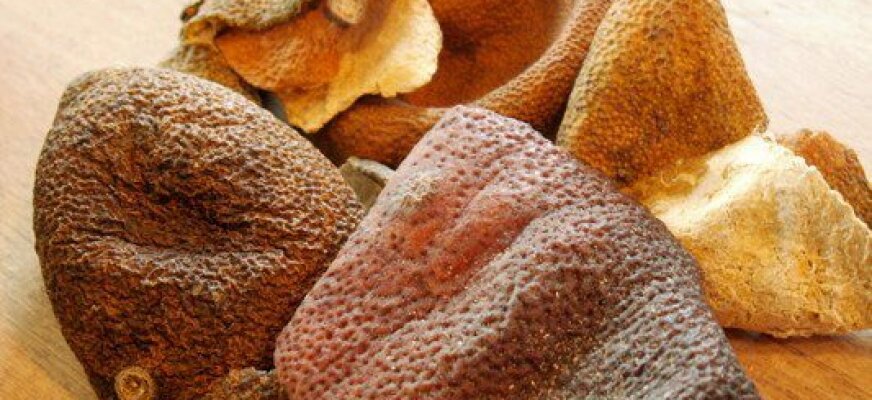Acupuncture has previously been shown to reduce breathlessness in patients with cancer, and now we can add COPD to the list! In a very exciting development in the world of research on acupuncture, a small-but-promising study published last week in the Archives of Internal Medicine found that acupuncture holds benefit for people with Chronic Pulmonary Obstructive Disease.
Read moreTic-Toc, The Body's Clock Is Important For Your Health
It's been said that timing is everything, and that may be particularly true when it comes to the body's ability to fight off disease. Chinese and Western medicines both have a concept of a "body clock" with cycles of internal timing and regulation. New research published in the February issue of the journal Immunity shows that the success of our immune defense depends in part on our "body clock."
Read moreChinese Herb "Chang Shan" May Prove Effective For Auto-Immune Disorders
Chinese herbalists have been using bark, roots, seeds, and flowers to treat serious medical conditions for over 2,000 years. In modern times, pharmaceutical companies have made big money by isolating certain compounds from plants and replicating them synthetically. It is within this context that I want to highlight a new study from Harvard School of Dental Medicine that has isolated molecular properties in the Chinese herb Chang Shan, and found a use for it in treating auto-immune disorders like Multiple Sclerosis, Rheumatoid Arthritis, and Inflammatory Bowel Disease.
Read moreAcupuncture Reduces Protein Linked To Stress
Acupuncture reduces protein linked to stress in first of its kind animal study.
More news on the possible mechanisms of acupuncture! A researcher at Georgetown University Medical Center has found molecular evidence of acupuncture's ability to reduce stress by lowering the blood levels of a protein called neuropeptide Y. This protein is secreted by the sympathetic nervous system during stressful periods and constricts blood flow to many parts of the body. Although this is a preliminary animal study, it follows that by reducing this protein, acupuncture can help return blood flow to the extremities and digestive organs so people may feel less pain and more relaxed overall. This experiment will need to be replicated in humans before we can say for sure, but this finding may prove to be one more piece of the mechanism puzzle!
New Screening Guidelines for Lung Cancer + TCM can help!
If you know anyone who has battled lung cancer, you know that one of the biggest obstacles to survival is the fact that people are often diagnosed in later stages of the cancer. One reason for this trend is that there have not been widely recommended, reliable, screening procedures for catching the cancer earlier on in its development. That changed this month, as the National Comprehensive Cancer Network (NCCN) published guidelines recommending the use of low-dose computed tomography (LD-CT) screening for select individuals at high risk for the disease. This new guideline is a category 1 recommendation, making it more strongly recommended than mammography or colonoscopy for high-risk individuals.
For the target group of heavy smokers 55 to 74 years of age, or anyone who has smoked 1 pack a day for 30 years (or 2 packs/day for 15 years), regular, annual LD-CT scans are recommended. Medscape quotes Mark Kris, from the Memorial Sloan-Kettering Cancer Center, stating, "Finally we have a screening test that meets that gold standard and has a substantial opportunity to decrease the death rate for lung cancer."
When it comes to treatment for lung cancer, the same Memorial Sloan-Kettering Cancer Center finds that acupuncture can be very useful for treating the symptoms* of the disease as well as the effects of chemotherapy and radiation. They state, "Acupuncture reduces many symptoms experienced by cancer patients in all stages of treatment, including [shortness of breath], fatigue, hot flashes, sexual dysfunction, urinary problems, osteoarthritis, [nerve pain], [dry mouth], and more. Most relevant to patients in the ICU, acupuncture can relieve anxiety, depression, stress, and pain, and it can reduce the amount of opioids required to maintain patient comfort."
Western MDs are often hesitant to use TCM herbal medicine and vitamin therapy during cancer treatment because many drug-herb interactions are unknown. There is preliminary evidence, however, that herbal medicine and vitamin supplementation can improve outcomes for people with lung cancer. A 10-year retrospective lung cancer survival study published this fall by the Pine Street Foundation, found that long-term herbal and vitamin therapy, combined with conventional cancer therapy, reduced stage IIIA deaths by 46%, stage IIIB by 62%, and stage IV by 69% compared with conventional therapy alone. Promising news from the folks at Pine Street!*
Just to reiterate, TCM is not used to "cure" cancer, but is used to treat symptoms and improve quality of life as people go through treatment.
Laughter Is Good For The Heart ... but you knew That
One of the main tenets of Chinese Medicine is that our emotions play a role in our health and physical functioning. In the last few decades, Western science has begun to understand this idea in a number of ways, whether it's shown how stress affects the body, how anger and depression keep people from recovering faster, or that laughter is good for you.
In TCM, the emotion that belongs to the Heart is Joy. We all know that Joy can help to heal the heart. (On the other side of the spectrum, too much joy (ie. mania) can also injure the heart fluids.) In the Western medical world, Michael Miller, a researcher at the University of Baltimore Medical Center, has researched joyful experiences, and how they help the heart function better. In one study, Dr. Miller found that people with heart disease were less likely to find humor in situations, to recognize humor, or use it to get out of uncomfortable situations. They generally laughed less, even in positive situations and they displayed more anger and hostility. In another study, he looked at the effects of listening to (self-selected) joyful music vs. anxiety-producing music. He found that listening to anxiety-producing music constricted the blood vessels (making the heart work harder to circulate the blood and raising blood pressure), while listening to joyful music opened the blood vessels (easing the load on the heart muscle and lowering blood pressure).
Now, Dr. Miller has reported on another study, yet to be published, that shows that laughter has similar effects on our blood vessels.
"We want to maintain good vascular health, and we do that by maintaining a good diet and good regular physical activity, but it turns out that emotions also play an important role here," Miller recently told the media during a morning press conference at the European Society of Cardiology Congress (2011).
These researchers promoted laughter by showing movies or segments from Saturday Night Live to really make people laugh. They also screened intense segments of dramatic movies, such as Saving Private Ryan. After each movie, endothelial function was measured in the blood vessels. After watching the scene from Saving Private Ryan, blood vessels constricted by as much as 30% to 50%, whereas vasodilation occurred when investigators measured vascular function in subjects watching the comedies. They also observed that vasoconstriction and vasodilation can occur quickly, with the funny movies reversing blood-vessel contraction that occurred after watching the stressful D-Day scene. They found that the effects of laughing for 10-15 minutes last in the body for up to an hour and can have similar effects to exercise for heart health.
Maybe this all seems obvious. Even if TCM has been saying this for 2,000 years, the more Western Medicine recognizes the ways that emotions affect our health, the better!
(Photo credit: Michael Kuhn)






